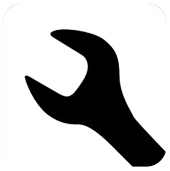Making things! Hackdays, prizes and prototypes¶
The structure of these competitions is that a number of datasets are released and programmers then have a short time-frame - running from as little as 48 hours to a few weeks - to develop applications using the data. A prize is then awarded to the best application. Competitions have been held in a number of countries including the UK, the US, Norway, Australia, Spain, Denmark and Finland.
Dæmi um samkeppnir¶
Show us a better way was the first such competition in the world. It was initiated by the UK Government’s “The Power of Information Taskforce” headed by Cabinet Office Minister Tom Watson in March 2008. This competition asked “What would you create with public information?” and was open to programmers from around the world, with a tempting £80,000 prize for the five best applications.
Apps for Democracy, one of the first competitions in the United States, was launched in October 2008 by Vivek Kundra, at the time Chief Technology Officer (CTO) of the District of Columbia (DC) Government. Kundra had developed the groundbreaking DC data catalog, http://data.octo.dc.gov/, which included datasets such as real-time crime feeds, school test scores, and poverty indicators. It was at the time the most comprehensive local data catalog in the world. The challenge was to make it useful for citizens, visitors, businesses and government agencies of Washington, DC.
The creative solution was to create the Apps for Democracy contest. The strategy was to ask people to build applications using the data from the freshly launched data catalog. It included an online submission for applications, many small prizes rather than a few large ones, and several different categories as well as a “People’s Choice” prize. The competition was open for 30 days and cost the DC government $50,000. In return, a total of 47 iPhone, Facebook and web applications were developed with an estimated value in excess of $2,600,000 for the local economy.
The Abre Datos (Open Data) Challenge 2010. Held in Spain in April 2010, this contest invited developers to create open source applications making use of public data in just 48 hours. The competition had 29 teams of participants who developed applications that included a mobile phone programme for accessing traffic information in the Basque Country, and for accessing data on buses and bus stops in Madrid, which won the first and second prizes of €3,000 and €2,000 respectively.
Nettskap 2.0. In April 2010 the Norwegian Ministry for Government Administration held “Nettskap 2.0”. Norwegian developers – companies, public agencies or individuals – were challenged to come up with web-based project ideas in the areas of service development, efficient work processes, and increased democratic participation. The use of government data was explicitly encouraged. Though the application deadline was just a month later, on May 9, the Minister Rigmor Aasrud said the response was “overwhelming”. In total 137 applications were received, no less than 90 of which built on the re-use of government data. A total amount of NOK 2.5 million was distributed among the 17 winners; while the total amount applied for by the 137 applications was NOK 28.4 million.
Mashup Australia. The Australian Government 2.0 Taskforce invited citizens to show why open access to Australian government information would be positive for the country’s economy and social development. The contest ran from October 7th to November 13th 2009. The Taskforce released some datasets under an open license and in a range of reusable formats. The 82 applications that were entered into the contest are further evidence of the new and innovative applications which can result from releasing government data on open terms.
Conferences, Barcamps, Hackdays¶
One of the more effective ways for Civil Society Organisations (CSOs) to demonstrate to governments the value of opening up their datasets is to show the multiple ways in which the information can be managed to achieve social and economic benefit. CSOs that promote re-use have been instrumental in countries where there have been advances in policy and law to ensure that datasets are both technically and legally open.
The typical activities which are undertaken as part of these initiatives normally include competitions, open government data conferences, “unconferences”, workshops and “hack days”. These activities are often organised by the user community with data that has already been published proactively or obtained using access to information requests. In other cases, civil society advocates have worked with progressive public officials to secure new release of datasets that can be used by programmers to create innovative applications.


